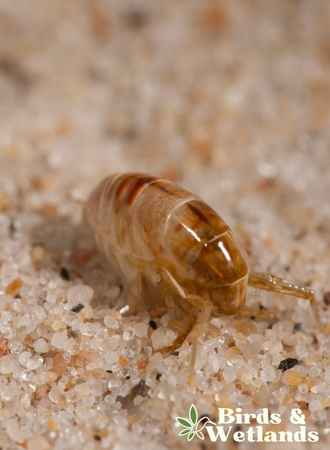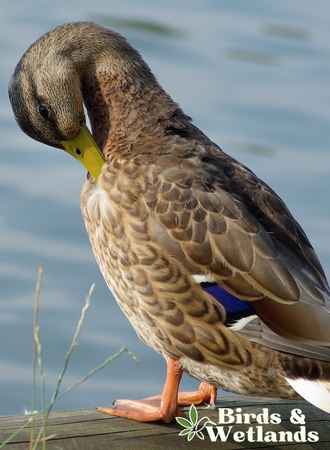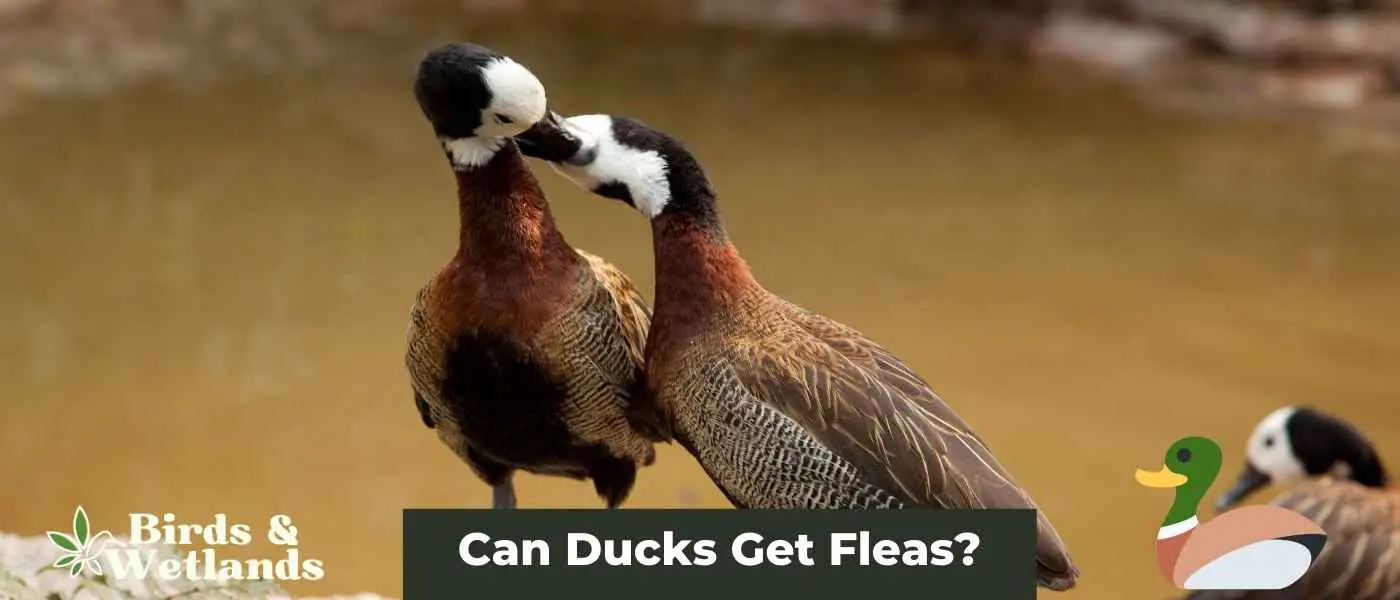Ducks are charming, heedless creatures. They encounter a lot of other animals, big and small, in the wild or in the backyard.
But can ducks can get fleas?
While it’s relatively rare, ducks can indeed get fleas, though these are typically bird-specific parasites rather than the more common cat or dog fleas. Ducks can also be affected by lice, mites, and ticks. These pests can cause discomfort, itching, and sometimes even lead to more serious health issues. Regular health checks and maintaining clean living conditions are crucial to preventing infestations and ensuring the well-being of your ducks.
Key Takeaways on Do Ducks Carry Fleas
- Ducks can carry fleas, but these are different from the fleas found on cats and dogs.
- Fleas in ducks can lead to excessive scratching, loss of feathers, decreased egg production, and over time, anemia.
- Fleas in ducks are potentially harmful to humans, causing a condition known as ‘swimmer’s itch’ or ‘swimmer’s dermatitis’.
- Ducks can be treated for fleas using powders or sprays that contain trichlorfon or malathion. These treatments should be continued for two or more weeks.
- Flea prevention in ducks includes regular check-ups, cleaning cages and runs, and treating the areas with mixtures of paraffin and creosote or nicotine sulfate.
- If ducks live with chickens suffering from lice or flea infestations, they are at a higher risk of getting infected. Thus, it’s necessary to check the chickens regularly and separate the ducks if any infestation signs are present.
- Humans can treat the rash caused by duck fleas with soothing lotions, antihistamines, or mild corticosteroid creams. Severe rashes may require a visit to the doctor.
- Apart from fleas, ducks can also be infested with lice, various types of mites, and ticks. These parasites can cause significant health issues in ducks, such as skin irritation, feather loss, anemia, and death.
- Fleas in ducks rarely occur but can cause significant discomfort and health risks. Prevention and early treatment are essential for maintaining the health of the ducks.
Can Ducks Carry Fleas?

While it may seem unlikely that ducks could harbor fleas and other external parasites, the truth is that they can get fleas and may be more susceptible to them than other pets.
Ducks spend much time outside, where they are more vulnerable to insects and parasites such as mites, ticks, mosquitoes and fleas. Furthermore, their dense plumage provides an ideal environment for fleas to lay their eggs and find shelter while feeding on blood.
However, it is important to note that the type of flea found on a duck differs from those that commonly infest cats and dogs. Fleas are generally smaller in size but have broader bodies and shorter legs, allowing them to cling to duck’s feathers more effectively.
If your ducks carry fleas, you will most likely see these parasites all over your waterfowl. Fleas breed in various places, including bird nests and crevices in pathways and buildings. These fleas can be found on the duck’s eyes and other parts of its body, such as the neck and head.
Do Fleas Bite Ducks?

Some people wonder if fleas will bite ducks, a popular backyard pet. Ducks can generally be bitten by fleas, though this is not common.
Ducks have stronger immune systems than most other pets due to their natural affinity for aquatic environments, which reduces their susceptibility to flea-borne diseases.
Furthermore, the ducks’ thin, bare skin makes them less susceptible to flea bites than other animals.
Can Fleas Kill Ducks?
Fleas are well known for infesting dogs and cats but can also harm waterfowl such as ducks. While flea bites rarely kill ducks, these tiny parasites can cause significant discomfort and pain.
How Do Fleas Affect Ducks?

Fleas can be a major issue for ducks, as these parasites negatively affect the birds’ health and quality of life. For instance, fleas can cause ducks to excessively preen and scratch, resulting in significant feather loss.
Furthermore, fleas make it more difficult for ducks to eat, sleep, and rest because they bite the birds and feed on their blood.
Fleas can affect egg production among waterfowl flocks. Generally, ducks with high levels of flea infestation lay fewer eggs than those without parasites. Some female ducks stop laying eggs altogether.
Over time, hosting a large population of fleas can lead to an increased risk of anemia and death from illness or extreme malnutrition.
How to Treat Duck Fleas
If your duck has fleas, you should first get rid of them as soon as possible. To do so, use a powder or spray containing trichlorfon or malathion, both powerful pesticides that effectively kill these parasites.
There are many chemical flea treatments available online. Still, it’s best to consult your vet before selecting a specific brand and following their directions to ensure proper treatment.
Keep an eye out for fleas on your waterfowl and continue any necessary treatments for at least two weeks or longer to eliminate the problem.
Flea and Tick Spray
Unleash the Power of Nature in Your Garden
Experience a greener, more effective solution to pesky invaders in your garden with Wondercide Natural Pest Control Concentrate. Harnessing the potent power of nature, this product safeguards your outdoor space, offering an environment-friendly yet powerful defense against a variety of pests.

Pros
- Natural Ingredients: Formulated with all-natural ingredients, Wondercide offers a safer alternative to traditional chemical pesticides, reducing exposure to harmful toxins for both you and the environment.
- Versatile Use: This concentrate is not only effective against a wide range of pests, but can also be used in numerous outdoor spaces, from gardens to patios, ensuring comprehensive protection.
- Easy to Use: Simply dilute the concentrate according to the instructions, and apply using a sprayer. No special equipment or professional help required.
- Non-Staining: Unlike some other pest control products, Wondercide won’t leave unsightly stains, keeping your outdoor areas looking their best.
- Safe for Beneficial Insects: Wondercide is designed to target only the pests, sparing beneficial insects like bees and butterflies that play a crucial role in your garden’s ecosystem.
Cons
- May Require Multiple Applications: Depending on the severity of the pest infestation, you may need to apply the product multiple times for it to be effective
| Parasite | Symptoms in Ducks | Common Treatments |
|---|---|---|
| Fleas | Excessive scratching, loss of feathers, discomfort, decreased egg production, possible anemia | Use of a powder or spray containing an approved avian insecticide, like pyrethrin. |
| Lice | Unnoticeable until large infestation, excessive preening, feather loss, dull feathers, decreased egg production, weight loss | Topical treatments such as pyrethrin dust or spray. |
| Depluming mites | Irritation and feather loss | Treatments such as sulfur baths, malathion, carbaryl dust, and ivermectin topical application. |
| Northern fowl mites | Anemia | Control and eradication with ivermectin, permethrin, or other approved avian mite treatments. |
| Red poultry mite | Decrease in reproductive potential and egg productivity, can cause anemia and death | Exzolt from MSD Animal Health or other mite treatments like permethrin or ivermectin. |
| Scaly leg mite | Redness, lameness, and swelling in the legs and feet | Ivermectin, or suffocating the mites with petroleum jelly. |
| Ticks | Stop laying eggs, possible paralysis | Manual removal, use of approved tick treatments, ducks can eat ticks. |
| Roundworms | Weight loss, decreased egg production, diarrhea, possible blockage of intestines in heavy infestations | Anthelmintic medications like fenbendazole or levamisole. |
| Tapeworms | Weight loss, decreased egg production, diarrhea | Praziquantel or similar medications prescribed by a veterinarian. |
| Flukes (Trematodes) | Decreased egg production, weight loss, lethargy | Praziquantel or similar medications prescribed by a veterinarian. |
| Coccidia | Diarrhea (possibly bloody), weight loss, lethargy, decreased egg production | Anticoccidial medications like amprolium. |
Can Duck Fleas Harm Humans?
Duck fleas are usually dark brown and can jump high into the air. They primarily attack and feed on ducks. While these parasites do not usually target humans, they can still be harmful if they come into contact with them.
For example, if humans swim in infested waters, fleas may mistakenly attack their bodies. Furthermore, even though fleas do not directly bite or feed on humans, they can easily get inside our homes via ducks that have traveled inside.
Though uncommon, humans can still experience minor skin irritations from ducks’ fleas. When this happens, a mild corticosteroid cream can help relieve itchiness before it becomes a more severe rash. The itchiness should go away on its own but may take between 15 to 20 days to disappear completely.
How to Prevent Ducks Fleas

Duck fleas infestation is a real, ever-present danger to your flock. Fortunately, there are many ways duck owners or duck keepers can do to prevent an infestation.
Check your ducks regularly for fleas, scaly leg mites, northern mites, northern fowl mites and feather lice. Fleas are often overlooked especially on dark-colored birds before a large infestation occurs.
If one of your ducks carries fleas, isolate it from other ducks before flea infestation becomes a problem.
Maintain the cleanliness of your ducks by keeping them free of dirt and mud. This routine entails giving them a dust bath and holding regular cleaning sessions where you thoroughly wash their feathers.
Ensure you are using proper vaccinations for your ducks, as these can help prevent the spread of parasites like duck fleas.
Regular veterinary check-ups can help you identify potential issues before they become major health problems. If you notice any signs of duck fleas or other parasites, take action as soon as possible.
Use insecticides or repellents on your ducks to help drive away fleas and ticks, especially during the summer when these parasites are more prevalent.
Consider adding feed supplements that contain probiotics. These live bacteria and yeasts can help boost your ducks’ immune systems, making it harder for fleas and other frequent pests to take hold in the flock.
Keeping your ducks healthy through good nutrition and exercise will go a long way in helping reduce their risk of contracting duck fleas or other parasitic infections. Make sure your ducks are eating properly. A well-balanced diet supplemented with fresh fruits and vegetables can do wonders for boosting your ducks’ overall health and resilience against unwanted pests like fleas and ticks.
FAQs on Ducks’ Fleas, Mites and Lice
Can Humans Get Mites From Ducks?
Mites are a common problem in poultry such as chickens. Among the most common poultry mites include the scaly leg mite, red poultry mite and depluming mite. Any of these mites can get into your ducks and young birds if they come in contact with affected poultry.
Duck mites are parasites that feed on the blood of birds such as chickens and ducks. Bird mites generally try to survive on a human host but cannot reproduce on our blood. As a result, most people who come into contact with duck mites will not exhibit any symptoms commonly associated with mite parasitism such as itchy skin rash and other skin irritation.
On the other hand, those who work with ducks or live on a farm or in a rural area may be more susceptible to bird mites. These people should take precautions to protect themselves from these tiny pests and seek medical attention if they notice any signs of a skin reaction or other symptoms that a bird mite infestation could cause.
Finally, regular hygiene and pest control measures can help prevent human exposure to duck mites and protect both human and duck health.

